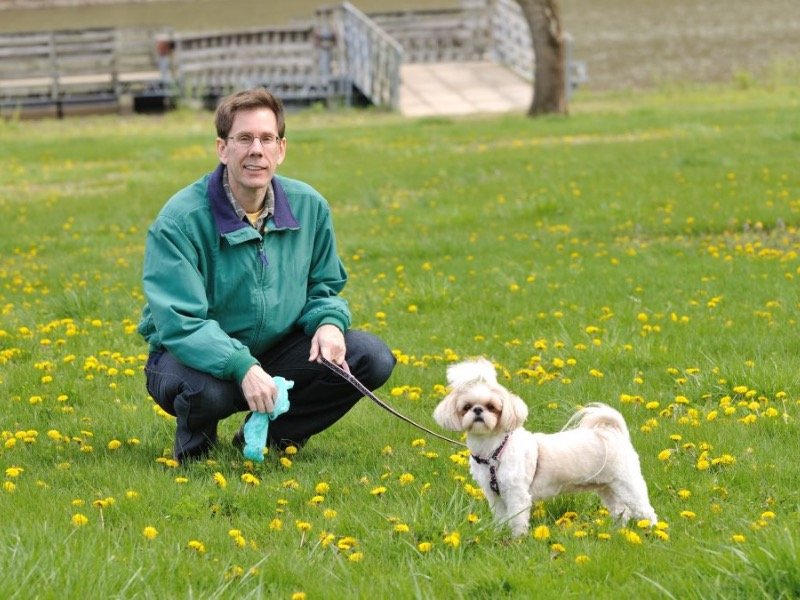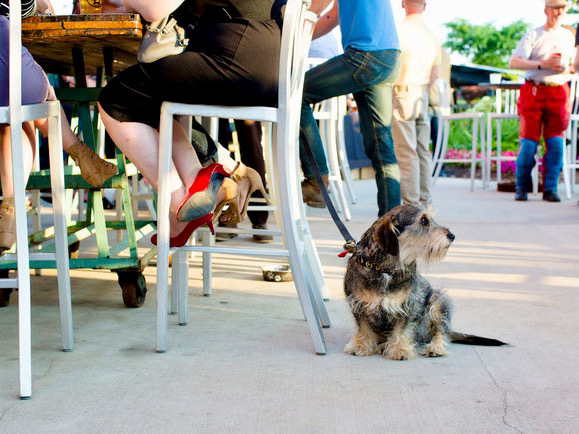When you find dog poop on your property, and you don’t own a dog yourself, you may be wondering how it got there.
Not only is dog poop gross and hard to clean off your shoes, it is also an environmental hazard according to the United States Environmental Protection Agency (EPA). Just one gram of dog poop may contain over 23 million bacteria, many of which can be dangerous to both animal and human health. Parvovirus, coronavirus, E. Coli, whipworms, Coccidia, hookworms, Guardia, tapeworms, salmonella and Campylobacteriosis are just a few of the many dangerous illnesses that can be spread through dog fecal matter.
These dangerous diseases can spread all over your lawn and inside your house, or be carried down into the groundwater where they can live for more than a year.
Insects and other animals are also attracted to the dung, and they carry their treasures with them wherever they go.
Dog waste is not a fertilizer
All the hard work of keeping your lawn green and healthy can be erased when Fido comes over to play unannounced. Dog poop can destroy your lawn by causing brown spots and discoloration. A once luscious lawn can become unsightly when dog poop takes over and leaves patches in the grass. Dog poop and urine produce excess nitrogen which can kill your lawn.
What should I do to stop dogs from using my lawn as a potty station?
First of all, it’s important to refrain from making assumptions. Just because you find dog doo-doo on your lawn doesn’t mean that your neighbor was leaving it there on purpose.
Stop yourself from acting rashly or out of anger: consider what might have happened and that this one-time transgression may have been an accident. Did a stray dog pass through your neighborhood, leaving little gifts behind? Did your sweet but preoccupied neighbor forget to bring a plastic bag and promise to come back any minute with the bag? Did your neighbor’s large dog escape his enclosure once again and head to his favorite spot: your lawn?
First, try playing detective to find out who or what might be behind this "dirty" deed. Using adequate precautions and distance, consider inspecting the specimen to see whether it came from a large or small animal. Ask nearby neighbors if they have been experiencing the same problem. Keep an eye out for any dogs passing by, and see if they stop on your lawn to do their business. Remember to never accuse someone of allowing their dog to poop on your lawn. Always get the facts straight first.
Once you have conclusively determined which dog has been causing offense to your lawn, find a polite way to address the owner of the dog. Consider using "I" statements and avoid sentences that start with "you." For example, you might say, "I noticed that your dog has been using my lawn to relieve himself. I am not sure if you are aware, but dog poop can have very dangerous germs. Is there any way you could either pick up the poop next time or find a different spot for him to do his business?"
If the owner continues to allow his or her dog to continue to defecate on your property, you can always set up a camera or take pictures as evidence. Remember, the law is on your side. Whatever you do, stay calm; do not harass, threaten, intimidate or otherwise elevate the tension.
What not to do when you find dog waste in your yard
It’s OK to feel upset, irritated and annoyed when you find your lawn contaminated with dog waste. However, don’t turn your feelings into behavior that could invite retaliation. Here’s a list of what you should avoid doing when you are upset with your neighbor’s dog:
- Don’t cause physical harm to your neighbor or his or her dog.
- Do not light the dog poop on fire in front of your neighbor.
- Don’t yell at your neighbor or cause a scene.
- Don’t take the dog poop and toss it onto your neighbor’s property.
- Don’t deliver the dog poop to your neighbor’s mailbox or front door.
What are my rights as a property owner?
You have a right to a clean, disease-free home and lawn. If a dog continues to trespass on your property without your permission and cause damage to your lawn, it might be time to seek the help of an experienced attorney.
Sophie Kaemmerle is communications manager at NeighborWho.com. NeighborWho's mission is simply to help you better understand your neighborhood. Learn about your neighbors, the houses on your street, current and past owners, access property reports and lookup public records. Public records are aggregated to compile in-depth reports on properties & people – NeighborWho provides a wealth of information at your fingertips.







